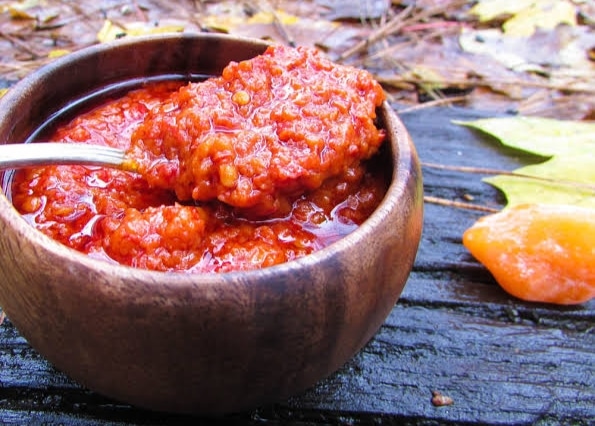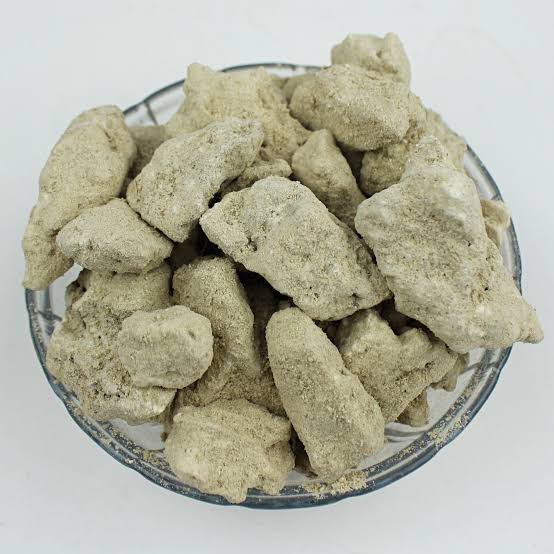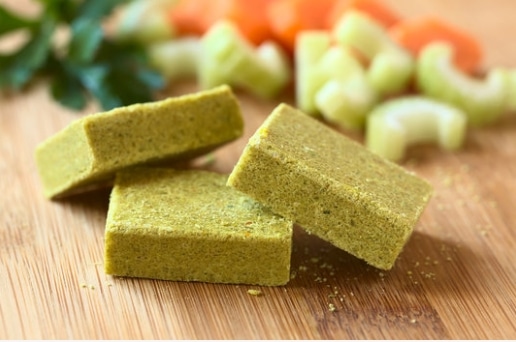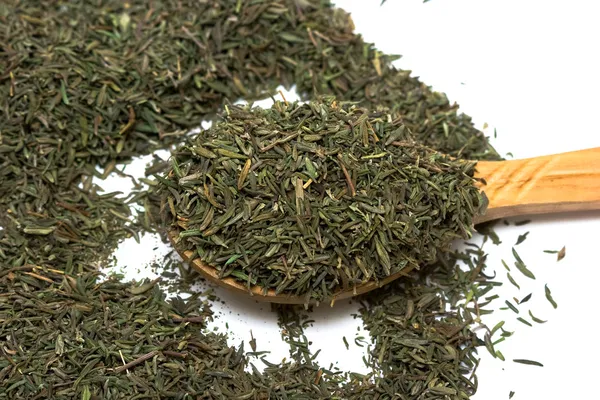Potash is commonly used in cooking here in Nigeria. It is known by its other names, like ‘Akanwu,’ among the Igbos, and ‘Kaun,’ among the Yorubas. It is a type of lake salt, sodium carbonate or potassium carbonate. It has a chalk-like texture and is usually whitish or grey. This article will discuss the possible health effects of potash (Akanwu or Kaun).
Potash is a mix of different types of chemicals and minerals, including potassium, sodium, magnesium, aluminum, calcium, and more. It also contains impurities like sand. It has a dry, salty taste and could also be tasteless at times.
In Nigeria, potash is used in cooking, but not like a regular ingredient. For example, when cooking beans, potash is used to make them softer, which reduces the cooking time. It is also used when making soups, where it is used as a thickener and some other types of dishes.
Besides its culinary use, potash is also used for other things, including toothache relief, cough treatment, making fertiliser, making tobacco snuff, and a whole lot more.
In today’s article, we would be looking at some of the health effects of potash and see if using it does any good to the body at all.
High Sodium Content
Potash has a high sodium content, which is not good for the body. The effects of a high intake of sodium include headaches, an increase in blood pressure, kidney disease, kidney stones, stroke, osteoporosis, and so on. When adding potash to your cooking, it would be best not to add additional salt to it so as not to increase the sodium content of the food. Also, avoid chewing potash for the fun of it. Doing so, then eating foods that contain salt would cause an increase in sodium levels in your body.
Another study demonstrated that potash was potentially harmful to the liver.
It Reduces The Protein In Foods
Using potash as a softener or tenderiser leads to a trade-off because it reduces the amount of protein present in the food. This means that you will be taking in less protein than you normally would. If this happens long-term, you may begin to suffer from protein deficiency, especially if you use potash in a lot of your cooking.
Might Cause Low Sperm Production
Studies have shown that men who consume too much potash may suffer from low sperm production. A 2021 study found out that the consumption of potash negatively affected sperm quality and sex hormones of male wistar rats.
This may lead to infertility issues, and they may find it difficult to have children. Besides that, it also causes testicular injury. However, the effects on humans may not be the same. More studies needs to be done.
Not Good For Pregnancy
Pregnant women are advised to abstain from consuming potash as it could induce an abortion or even lead to premature delivery. This is because it causes uterine contractions, which can be dangerous to pregnant women.
Mrs. Iyabode Alabi, a dietician and former Head of Department of Dietetics, University College Hospital (UCH), Ibadan, Oyo State stated that Potash might lead to health problems, especially in pregnancy.
High Blood Pressure
People who consume too much potash increase their risks of high blood pressure. This happens due to the accumulation of sodium in the blood. People who are hypertensive or who are at risk of high blood pressure should avoid foods that are high in sodium, like potash.
Might Damage The Kidneys
A 2021 study was done to investigate the nephrotoxic nature of potash (kaun) in wistar rats. The study showed that potash elevated sodium, potassium, creatinine and urea levels in the kidney. Observations from this study found out that potash is potentially toxic to the kidneys especially at high doses. And it was recommended that its consumption be discouraged.
Conclusion
As we have seen, even those potash has some benefits in the kitchen. It does not do the body a lot of good and is worth avoiding totally if you can. The health effects of potash are possibly very harmful, so they should be used with caution.
YOU SHOULD ALSO READ:
- 7 Worrying Health Effects of Late-night Sleeping
- Is Red Meat Good For The Body?
- 5 Negative Health Effects of Sugary Drinks
- 4 Must-Know Health Effects of Saccharin
- 5 Health Effects of Carbonated Drinks on the Body
- 5 Must-Know Health Effects of Junk Food
Collins Nwokolo is a human physiologist, writer and health enthusiast. He loves writing helpful articles on health and fitness, which he enjoys sharing with everyone.










